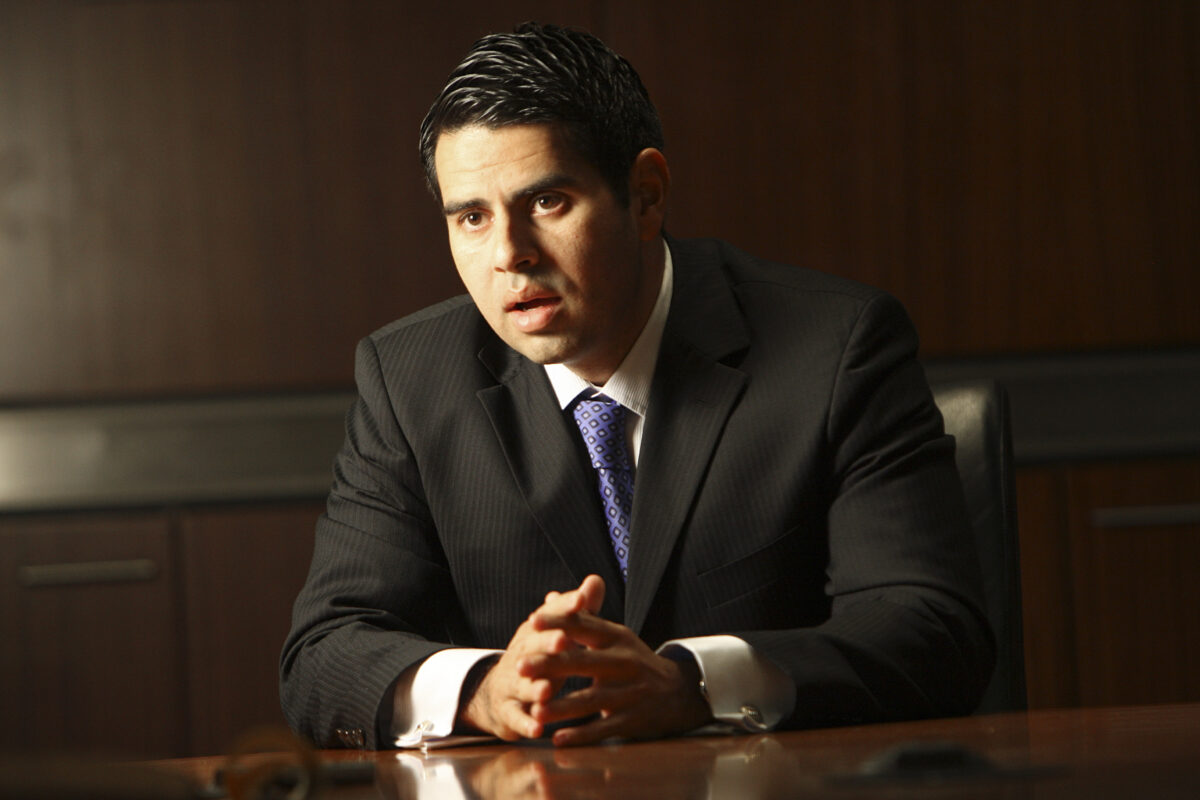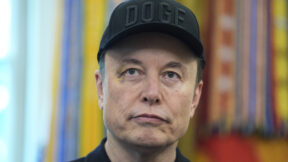NBCU Chief Cesar Conde and Other TV Executives Raising ‘Ethical Concerns’ With Paid Corporate Board Seats: AP Report

AP Photo/J. Pat Carter
While it’s not unheard of for people in the journalism industry to pick up a second job — have you seen the housing prices lately? — you wouldn’t necessarily expect top media executives to be seeking out side gigs, but they are, and the jobs they’re taking are raising ethical concerns about potential conflicts of interest.
A new report by AP national media and entertainment writer David Bauder describes how network brass are also holding paid positions on corporate boards, including NBC News Group chairman Cesar Conde (NBC News, CNBC, MSNBC, Telemundo, and NBC-owned local affiliates) serving on Walmart and PepsiCo’s corporate boards and new CNN CEO Mark Thompson chairing the Ancestry.com board. Conde particularly is finding himself under increased scrutiny after the botched hiring followed by a very swift firing of former RNC Chair Ronna McDaniel.
“The arrangement has raised some ethical concerns, and reveals a potential blind spot for a news business usually very serious about conflicts — real or perceived,” wrote Bauder.
Bauder’s article noted that there was “no evidence that Conde has been involved with any NBC stories involving” either Walmart of PepsiCo, and the network had previously told The Wall Street Journal in 2021 that he would recuse himself from reporting on either company. He was on the boards before rising to the top spot at NBC in 2020, earning six-figure income from each gig in a combination of cash and stock.
The AP was unable to confirm what, or if, Thompson was paid for his Ancestry.com board seat because it’s a privately-held company, but research indicated it was probably a six-figure job too. Like Conde, Thompson has recused himself from any coverage of Ancestry or its competitors in the genealogical field.
Conflict of interest issues can be complicated, and “[p]erception can be as important as an actual conflict,” wrote Bauder, noting that CNBC forbids both its journalists and their spouses from owning stock to avoid aspersions on the network’s business and market coverage.
Recusal helps, but fails to fully cure the conflict, former NBC News executive Bill Wheatley told the AP. Amazon founder Jeff Bezos’ ownership of The Washington Post is disclosed anytime the paper writes about the online retail giant, but that doesn’t stop critics from questioning the objectivity of the Post’s coverage, or what stories it choses to cover in the first place. NBC News hasn’t done this when it has covered Walmart, Bauder reported:
On NBC”s “Nightly News” last July, reporter Jacob Burns reported a story about how Walmart was using artificial intelligence to help stock its shelves and change the jobs of some of its employees. Burns quoted a company spokesman saying that AI wouldn’t result in job losses, and a business school professor who expressed some skepticism about that.
While Conde’s NBC corporate profile mentions his association with Walmart, it was not included as part of Burns’ story or in a handful of digital pieces that have run about the company.
“In an ideal world, I think news executives should avoid situations like this,” said University of Minnesota media ethics and law professor Jane Kirtley, and if that isn’t possible, a clear disclosure is important, including taking steps to ensure that reporters will be able to cover the companies involved “without fear or favor.”
Some media companies expressly prohibit employees from serving on corporate boards. The New York Times policy says its employees “may not join boards of trustees, advisory committees or similar groups except those serving journalistic organizations or otherwise promoting journalism education,” and staffers at The Wall Street Journal “may not serve as directors, officers, advisors, investors, consultants or partners of any company or venture devoted to profit-making.”
New: The Mediaite One-Sheet "Newsletter of Newsletters"
Your daily summary and analysis of what the many, many media newsletters are saying and reporting. Subscribe now!






Comments
↓ Scroll down for comments ↓